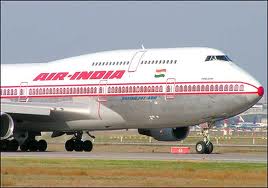
New Delhi, June 1: Air India will turn to expat pilots sacked recently by Jet Airways to beef up its dwindling numbers in a last-ditch attempt to normalize operations devastated by a 24-day strike by pilots.
"Air India seeks to operate a small international schedule from now on with the help of 200 pilots, for which it is looking to hire 50-60 expats sacked by Jet Airways recently," a senior official in the civil aviation ministry told ET.
The stricken national carrier is attempting to restore some semblance of normalcy to its crippled international operations, and improve financial performance to meet the milestones set by the government as a condition for the 30,000-crore bailout package. Money will be released only if the airline meets certain performance targets, such as dropping unprofitable routes.
The strike has cost the debt-laden airline more than Rs 330 crore in revenues and is worsening an already difficult financial situation. Air India's losses stand at Rs 20,000 crore and it has a debt of over Rs 43,000 crore.
Jet Airways, India's largest airline by market share, has decided to terminate the services of 72 expats after the near-collapse of Kingfisher Airlines forced several pilots of the Vijay Mallya-promoted carrier to seek jobs elsewhere.
Jet, which reported a doubling of losses in the fourth quarter ended March 2012, is looking to cut costs by hiring locals. Salaries of expat pilots are higher than those of their Indian counterparts.
Air India, whose operations have been affected by the 24-day strike by the 400-strong Indian Pilots' Guild (IPG), is operating a curtailed international schedule with nearly 120 executive/management pilots. The airline has sacked 101 of the 400 agitating pilots, who are demanding exclusive rights to fly Boeing 787 Dreamliner aircraft. The airline has not taken delivery of the aircraft so far.
However, after the terminations, the pilots have piped down.
Striking pilots will become redundant
The striking Air India pilots have agreed to resume work if their colleagues are either taken back immediately or an assurance is given to this effect. The government, however, has rejected this demand saying the pilots should join without any preconditions.
"AI has already got in touch with some of the available pilots and if the IPG members do not rejoin, they will become redundant as Air India is working on a plan to fly only on profitable international routes. So our requirement for pilots is going to come down," the official said.
Flying on profitable routes is one of the milestones for Air India and the civil aviation ministry recently set up an oversight committee to decide the routes that would be shut and those that would continue. The airline's losses have been blamed on high costs and a large concentration of unprofitable routes.
Air India's decision puts further pressure on the striking pilots, whose numbers had started thinning due to strong government pressure. Some pilots have returned to work and there is a feeling of inevitability among those still on strike.
There is a shortage of commanders in India and domestic airlines heavily depend on expatriates to fulfill their needs. But a few members of the IPG, who did not wish to be identified, agreed there would be no place for them if 400 pilots were to start looking for jobs. About 500 expat pilots are employed by various domestic airlines, but their services are likely to be terminated by December 2013.





Comments
Add new comment